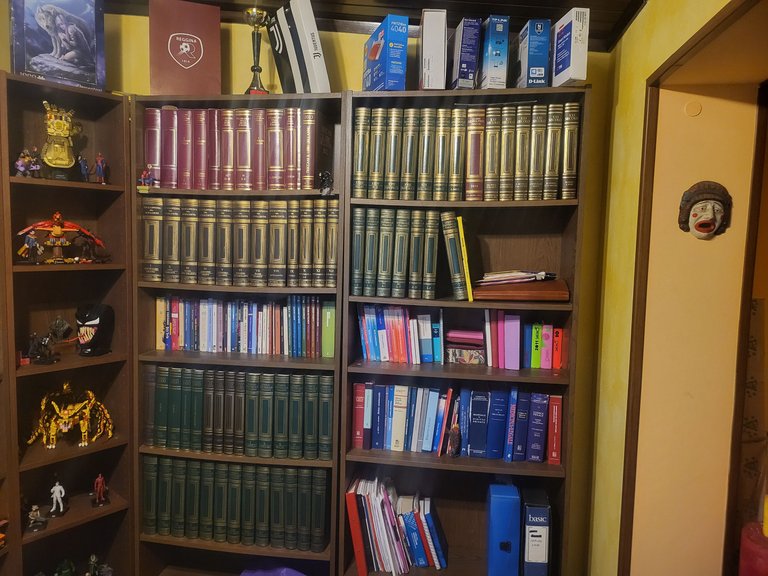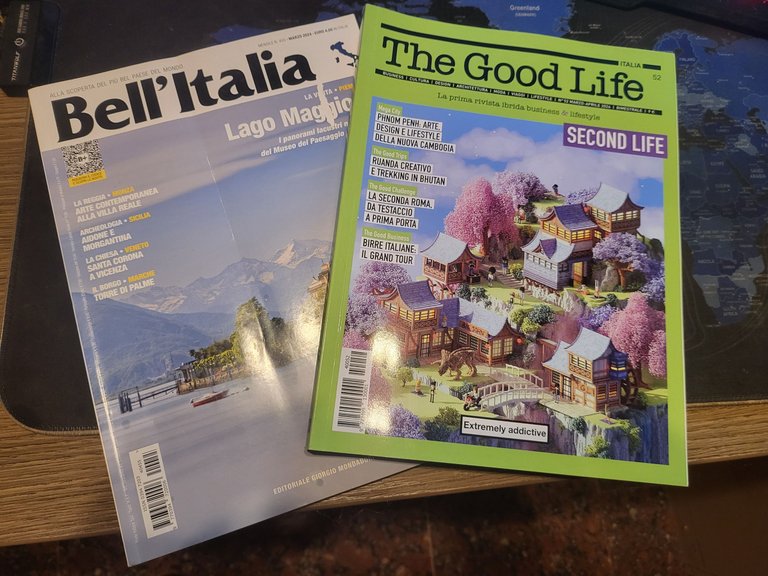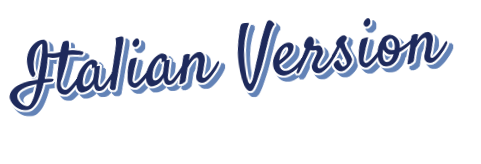Be uninformed or study, that's the question!

Concise, direct and, in its conciseness, brutal!
I don't think there is a better way to express the concept contained in Einstein's aphorism.
In my post today, however, I want to talk more about misinformation than information; surely, as often happens to me, I will let myself go with a thousand ideas and thoughts will cross paths so in the end the topic of knowledge will also be touched upon and related to the discussion of information.
After all, information and disinformation are two sides of the same coin, right?
Academically, in communication science, disinformation is a phenomenon that occurs when some information perceived by a subject may not correspond to the same intention for which it was spread, confusing or modifying (but we could also say, in some situations, and modifying) the opinions of someone or the entire public opinion (sorry for the cacophony) towards a person, a topic or a situation.
The definition just given says a lot; in fact, when we talk about disinformation, we must not only think of badly given news or in any case of responsibility on the part of those who disseminate this news but also of those who must receive the information and process it.
Sometimes it is a matter of personal perception, for example the conspirators will always see the shadow of a conspiracy since they approach every piece of news in a prejudiced way; think of flat earthers for example, there is no information that matters, for them the earth is flat and who cares about centuries of studies and science.
In the same way, sometimes, it is those who spread the information who use techniques aimed at diverting the thoughts of those who receive the news so as to be able to influence them; the queen technique in this case is that of fake news!
In any case, I believe that, from a personal point of view, it is our duty to choose the right sources and in any case I think it is also right to listen to more opinions, of course everything must be done with an open mind and in a very receptive manner.
Another important thing, and here we return to Einstein, is that the information must then be explored in depth in order to turn it into knowledge; if you listen to scientific news without knowing anything it would be a good idea to go and do some research, the same thing goes for every subject.
Naturally it would be better to do in-depth studies on approved texts that have weight in the scientific community, if we turn to the blog of the conspirator of the moment we continue to be inside the swirl of misinformation.
Often the news is fragmentary and there is a lot of hidden information, but by digging you can find everything you need to know; this unfortunately, or fortunately, sometimes requires skills and is not within everyone's reach or rather it is but to find the treasures of knowledge and truth you have to study, study and study again.
Mind you, I didn't say inform yourself but study; It's now obvious that for me they are two different things.
I would like to point out that I consider information important; information can be power in the hands of the right people, so if it is available to those who know how to evaluate and codify it and then study it further and transform it into knowledge, it becomes an unbridgeable advantage.
Whoever manages to develop this entire process and make it become a habit truly has immense power in his hands.
Information can be found everywhere, for example I read many magazines, for current affairs there are many newspapers and television news; obviously everything must serve as a starting point, it serves to give us the starting point and then it is up to us to delve deeper and research to create our own idea that is as close to reality as possible.

If I think about politics, there are many television programs in my country that continuously delve into Italian political issues; that for example, as I see it, is misinformation.
It is because they are always biased programs, they profess to be objective and impartial but in reality they always have preferences for one party rather than the other therefore, inevitably, the information becomes opinion and therefore loses the criterion of objectivity to abandon itself to wildest subjectivity.
However, if desired, these programs can also be useful for those who know what use to make of the information; you simply need to take the news that is given, naked and raw, then go and delve into it by doing your own impartial and objective research. In case we are missing some information, study comes in. Every programme, magazine or site can be a starting point for finding news, the important thing is that after finding the information we are interested in we go and check it and look into it further.
As you can see, knowledge requires a lot of effort, but information is no joke either; it takes careful selection work which sometimes turns out to be long and complicated, but it is important to do so because when we fall into misinformation we hurt ourselves first of all but we could also hurt those who take our thoughts into great account and our opinion.
Even today I really wrote quite a bit, as we wanted to demonstrate, the misinformation was just an opportunity to happily jump from one topic to another; However, I sincerely hope that this series of thoughts of mine will be interesting.
Thank you as always for getting to this point and for the time you have dedicated to me.
I hug you!


Conciso, diretto e, nella sua sinteticità, brutale!
Non credo esista un modo migliore per esprimere il concetto contenuto nell'aforisma di Einstein.
In questo mio post odierno però desidero parlare più di disinformazione che di informazione; sicuramente, come spesso mi capita, mi lascerò andare a mille idee e i pensieri si incroceranno quindi alla fine verrà toccato anche l'argomento della conoscenza e messo in relazione al discorso dell'informazione.
D'altronde informazione e disinformazione sono due facce della stessa medaglia, no?
Accademicamente, nella scienza della comunicazione, la disinformazione è un fenomeno che si verifica quando alcune informazioni percepite da un soggetto possono non corrispondere alla stessa intenzione per cui sono state diffuse, confondendo o modificando (ma potremmo anche dire, in alcune situazioni, e modificando) le opinioni di qualcuno o dell'intera opinione pubblica (scusami la cacofonia) verso una persona, un argomento o una situazione.
La definizione appena data la dice lunga; infatti, quando si parla di disinformazione, non bisogna pensare solo a notizie date male o comunque a responsabilità da parte di chi queste notizie le diffonde ma anche a chi deve recepire le informazioni e processarle.
A volte si tratta di un discorso di percezione personale ad esempio i cospiratori vedranno sempre l'ombra di una cospirazione poiché a ogni notizia si approcciano in maniera prevenuta; pensa ai terrapiattisti ad esempio, non c'è informazione che tenga, per loro la terra è piatta e fotte sega di secoli di studi e di scienza.
Alla stessa maniera, a volte, è chi diffonde le informazioni che utilizza delle tecniche atte a deviare il pensiero di chi riceve le notizie in modo da poterlo influenzare; la tecnica regina in questo caso è quella delle fake news!
A ogni modo credo che, da un punto di vista personale, sia nostro dovere scegliere le giuste fonti e comunque penso che sia anche giusto ascoltare più pareri, naturalmente il tutto va fatto con la mente aperta e in maniera molto recettiva.
Altra cosa importante, e qui torniamo a Einstein, è che l'informazione poi va approfondita per poterla far diventare conoscenza; se si ascolta una notizia scientifica senza sapere nulla sarebbe il caso di andare a fare delle ricerche, la stessa cosa vale per ogni materia.
Naturalmente gli approfondimenti sarebbe meglio farli su testi approvati e che abbiano un loro peso nella comunità scientifica, se ci rivolgiamo al blog del cospiratore di turno continuiamo a star dentro la girandola della disinformazione.
Spesso le notizie sono frammentarie e c'è molto sommerso, scavando però si può trovare tutto ciò che è necessario sapere; questo purtroppo, o per fortuna, a volte richiede competenze e non è alla portata di tutti o meglio lo è ma per trovare i tesori della conoscenza e della verità bisogna studiare, studiare e ancora studiare.
Bada bene, non ho detto informarsi ma studiare; ormai è lapalissiano che per me siano due cose diverse.
Ci tengo a precisare che reputo importante l'informazione; le informazioni possono essere potere nelle mani delle persone adatte, quindi se sono nella disponibilità di coloro che sanno valutarle e codificarle per poi approfondirle e trasformarle in conoscenza diventano un vantaggio incolmabile.
Chi riesce a sviluppare tutto questo processo e fa diventare la cosa un'abitudine ha davvero in mano un potere immenso.
L'informazione si può trovare ovunque, io ad esempio leggo molte riviste, per l'attualità ci sono poi tanti giornali e telegiornali; ovviamente tutto deve servire da spunto, serve per darci il là e poi sta a noi approfondire e ricercare per crearci la nostra idea che sia il più aderente possibile alla realtà.

Se penso alla politica, ci sono nel mio paese tantissimi programmi televisivi che fanno continui approfondimenti sui temi politici italiani; quella per esempio, per come la vedo io, è disinformazione.
Lo è perché si tratta sempre di programmi faziosi, si professano obiettivi e imparziali ma nella realtà hanno sempre delle preferenze per un partito piuttosto che per l'altro quindi, inevitabilmente, l'informazione diventa opinione e pertanto perde il criterio di oggettività per abbandonarsi alla soggettività più sfrenata.
Volendo però anche questi programmi possono avere utilità per chi sa che uso fare delle informazioni; basta semplicemente prendere la notizia che viene data, nuda e cruda, poi andare ad approfondirla facendo le proprie ricerche imparziali e oggettive, nel caso in cui poi ci manchino delle nozioni ecco che subentra lo studio. Ogni programma, rivista o sito può essere spunto per trovare una notizia, la cosa importante è che dopo aver trovato l'informazione che ci interessa andiamo a verificarla e approfondirla.
Come vedi la conoscenza richiede molta fatica, anche l'informazione però non scherza; ci vuole un lavoro di selezione accurato che a volte si rivela lungo e complicato, è importante però farlo perché quando cadiamo nella disinformazione facciamo male a noi stessi prima di tutto ma potremmo anche far del male a colore che tengono in grande conto il nostro pensiero e la nostra opinione.
Anche oggi ho scritto davvero un bel po', come volevasi dimostrare la disinformazione è stato solo uno spunto per saltellare allegramente da un tema all'altro; spero vivamente però che possa risultare interessante questa mia serie di pensieri.
Ti ringrazio come sempre per essere arrivato fino a questo punto e per il tempo che mi hai dedicato.
Ti Abbraccio!
The texts are translated with simultaneous translators; for the avoidance of doubt I have decided that they will all be translated exclusively with Google Translate.
Of course, English is not my first language but I try, forgive any mistakes and imperfections of Translate.
I wrote an article a long time ago (can't find it at the moment) about information, misinformation, and disinformation. I kind of see it like if you are informed, you have the correct information. If you are misinformed you have incorrect information. If you are disinformed, you have incorrect information given to you on purpose - like propaganda.
Yes, I completely agree with your thoughts; However, we must also understand the sources of information.
Certainly the greatest misinformation comes from those who carry out propaganda or spread false news to mislead us; However, I believe that checking sources is always a personal responsibility.
Then of course ideas also come into play in the field of information, but that would open up a much longer and more detailed discussion.
Isn't it beautiful how topics, themes and thoughts intertwine, giving life to a long and infinite reflection?
In my opinion, reflecting can be meditative.